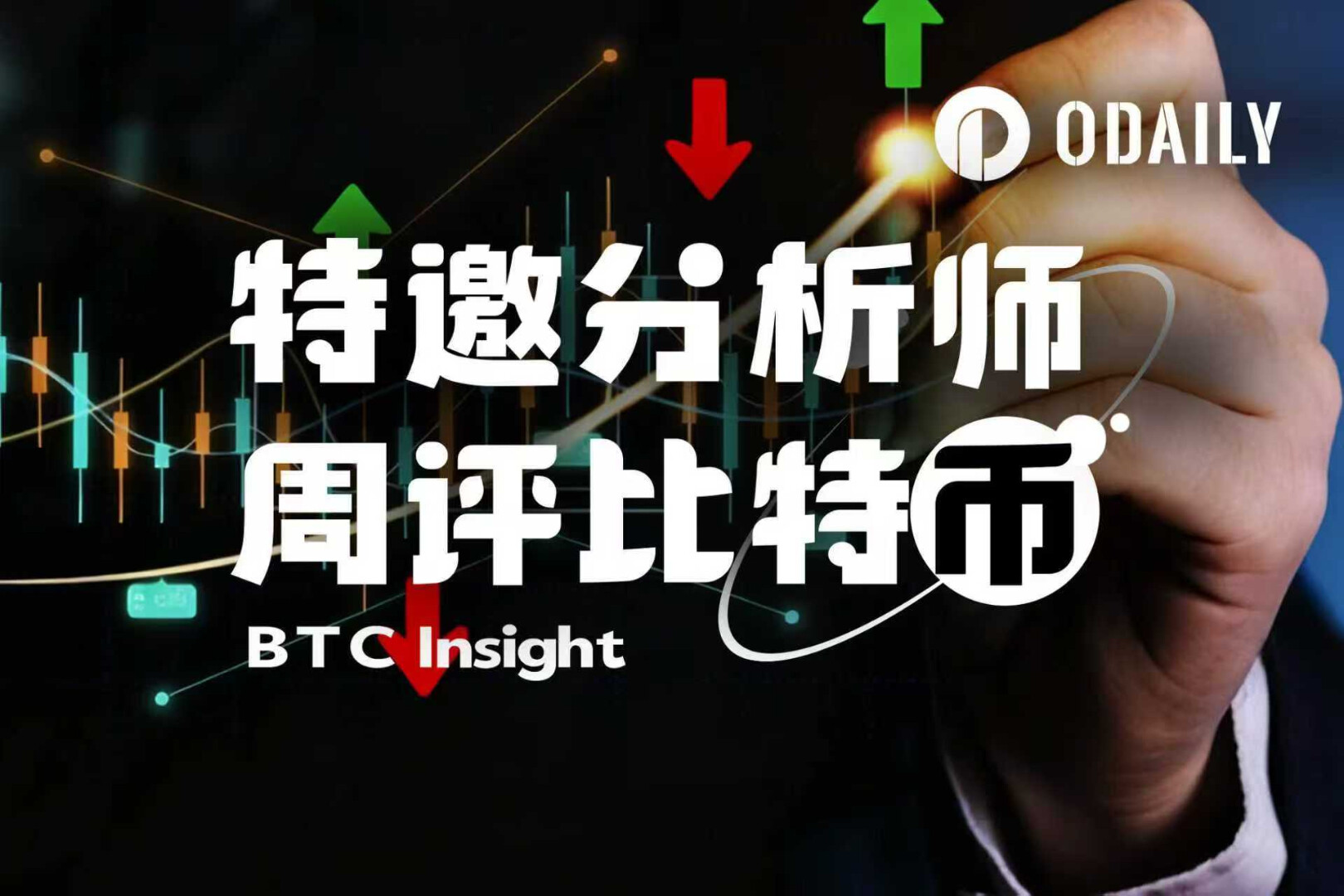Differentiated positioning and performance comparison of on-chain data analysis platforms
This article comes from MediumThis article comes from
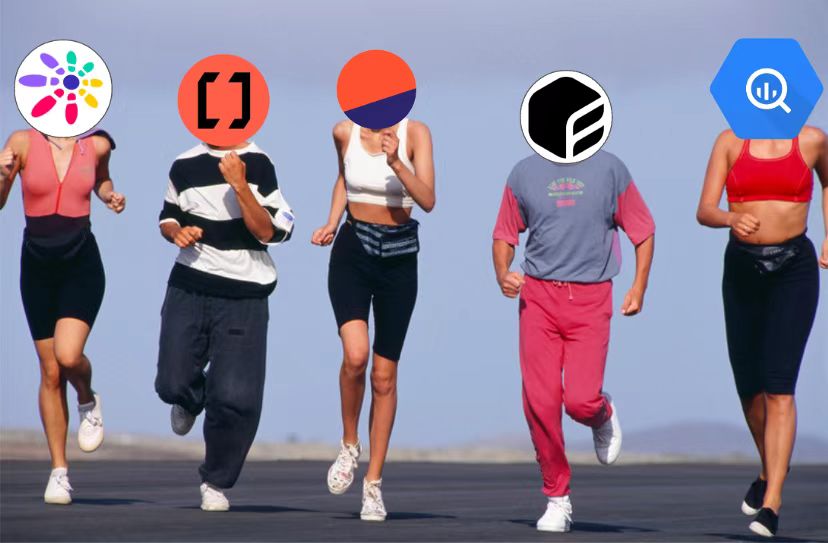
This article summarizes my research on the five on-chain data analysis platforms of Dune, Flipside, Transpose, Footprint and BigQuery, and evaluates their positioning and performance in the encryption ecosystem.
Five on-chain data analysis platforms that I use frequently
Dune
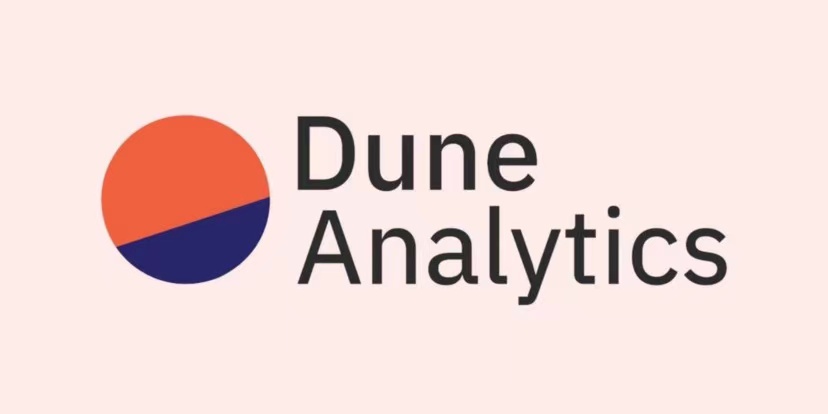
secondary title
Features: data dashboard function
Cons: Difficult to get data directly from the website
Data query language: V1—PostgresSQL | V2—Spark SQL
Number of Twitter followers: 79.7 k
Dune Analytics is clearly ahead in terms of adoption and growth. Founded in Norway in 2018, Dune realized the need for accessible on-chain data early on. They persisted in building in the cycle of bull and bear markets, generated a specific user base, and raised 6942 in February 2022 million, valued at $1 billion.
Dune primarily focuses on analytics and data dashboards. If you know SQL (database management systems) and are comfortable with cryptography, Dune's simple user interface makes it easy to start querying, graphing, dashboarding, and sharing data in minutes.
Dune also launched Dune V2, which utilizes Apache Spark (analytics engine) to handle a wider range of queries and supports cross-chain queries in the user interface.
Flipside
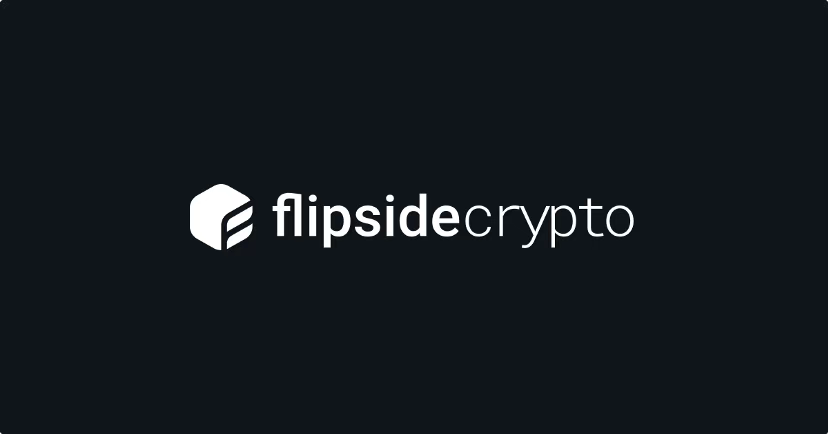
secondary title
Feature: ShroomDK (NFT-based SDK, programmable query access to comprehensive blockchain data)
Cons: In-browser user experience
Data query language: Snowflake (Twitter's open source high-performance ID generation algorithm)
Number of Twitter followers: 40k
Founded in the US in 2017, Flipside, like Dune, has held its own through bull and bear cycles. While Flipside also provides easy access to encrypted data and dashboard functions, their focus is on bounties and multi-chain integration. Flipside puts its bounties prominently on the site, while Dune's bounties are more subdued.
Flipside's focus on bounty and accessibility through its API is important to the data community, but its user interface still leaves a lot of room for improvement. While Flipside offers a robust toolset for dashboards, the experience is nowhere near as good as Dune's, and I've seen some dashboards that are more powerful than Dune's, but the interface and user experience lag behind. On top of that, large queries can freeze the browser.
Transpose
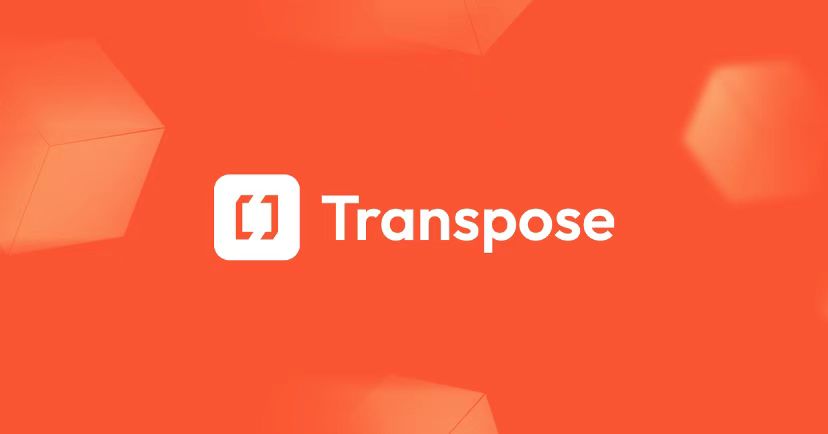
secondary title
Features: low latency
Disadvantage: Access to old saved queries
Data query language: Transpose SQL
Number of Twitter followers: 3 k
Transpose is making waves with its unique user interface and indexer focus. A "small and young" team formed in 2021 to focus on its API.
Transpose is clearly still young, there is still a lot to be desired, and being able to save and access queries easily would be a huge plus. The UI looks cool, but there are some inconveniences that come with it.
Footprint
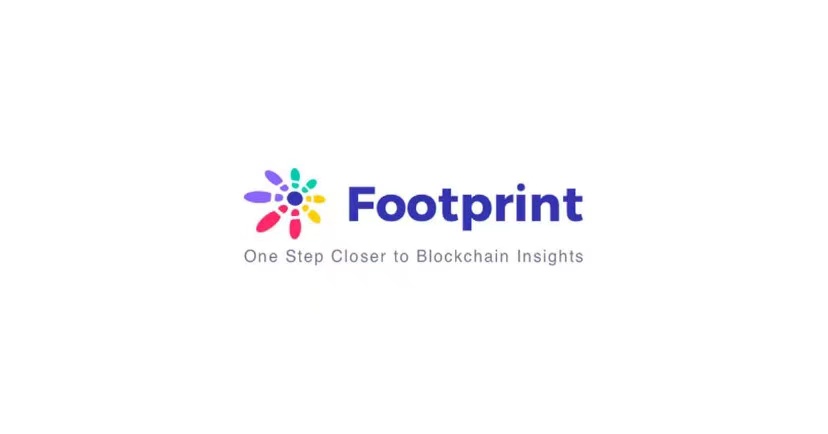
secondary title
Features: number of chains supported
Cons: User Experience
Data query language: MySQL
Number of Twitter followers: 12 k
In terms of user experience, Footprint lags a little behind the others. While they do support some unique chains, their interface is not very intuitive.
BigQuery
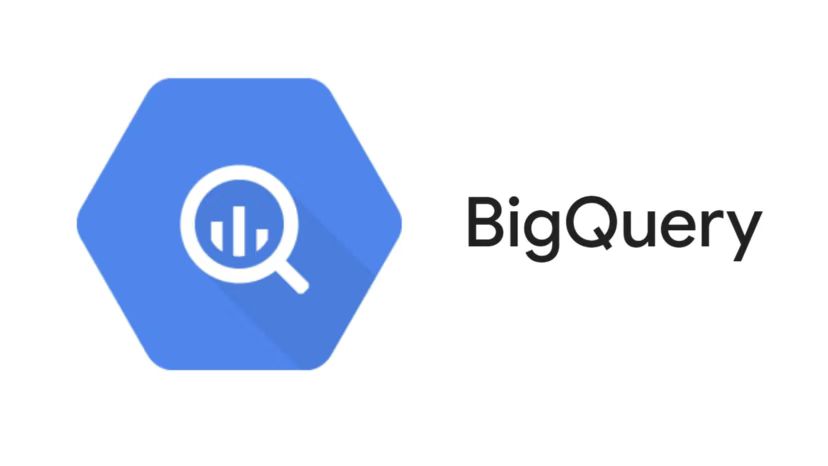
secondary title
Features: speed
Cons: Not a crypto-native product
Companies like Google have also started supporting the crypto community. Launched in 2011, Google BigQuery was built for fast querying of massive datasets, and it shows in their performance. The use cases and intent of BigQuery go far beyond encryption, the amount of encrypted data they hold is enormous. Of course, it was built first and foremost as a query engine and doesn't offer the analytical features that other engines do, such as visualizations and dashboards. Additionally, BigQuery does not provide any project-specific parsing data, only core protocol data such as transactions, blocks, and logs.
first level title
secondary title
data processing
data processing
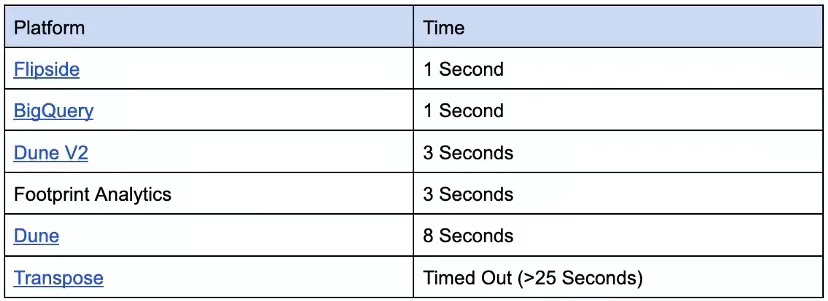
Flipside's competition with BigQuery is impressive. The significant improvement from Dune V1 to Dune V2 is also interesting. But Transpose timed out, probably because they didn't prioritize the analysis. It would be a good thing for users if using these types of queries improved performance.
secondary title
latest block
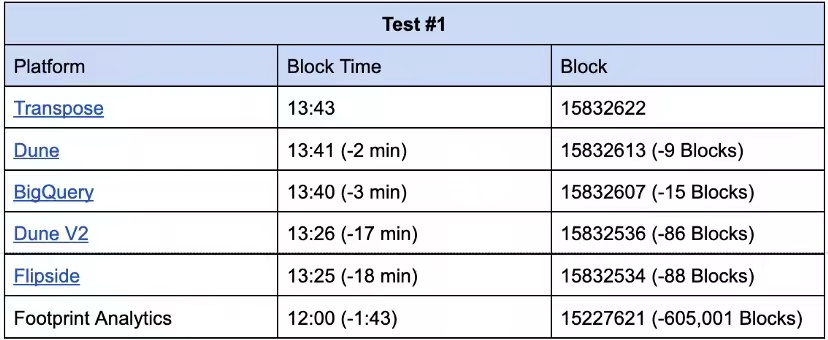
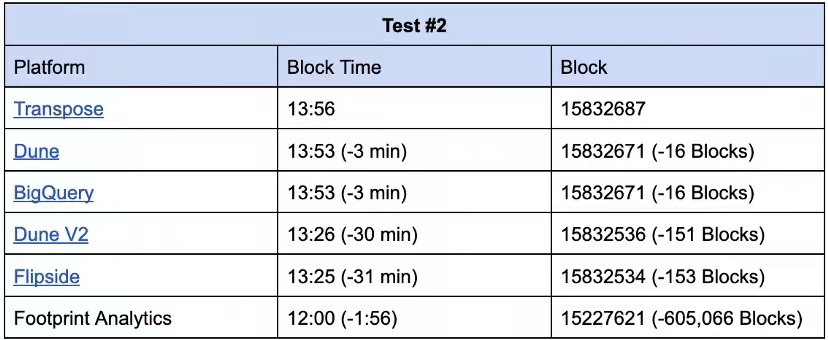
Transpose is positioned as an indexer, not an analytics platform. When I ran this test, the block returned by Transpose was the latest block at the time. Another thing to note is that there are no new outputs from Flipside, Dune V2, and Footprint between the two tests. They will most likely upload the data in chunks, which means that depending on your query times, the results can vary wildly.
secondary title
connection speed
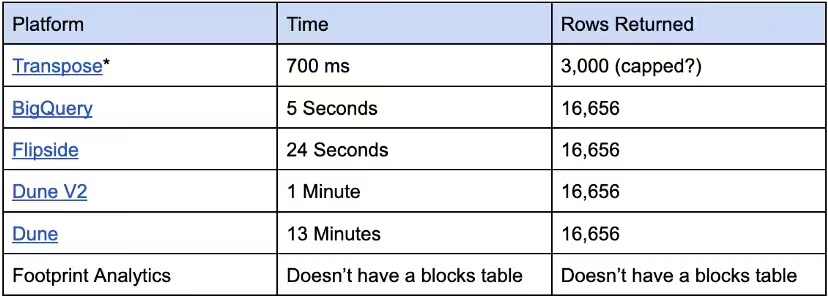
Transpose is the fastest query, however, the output is limited. In second place BigQuery is clearly the fastest, followed by Flipside and then Dune V2. Footprint doesn't have a block table, so I can't test the query. Dune V1 to V2 improved, but Flipside still surpassed them in performance.
secondary title
chains supported
first level title
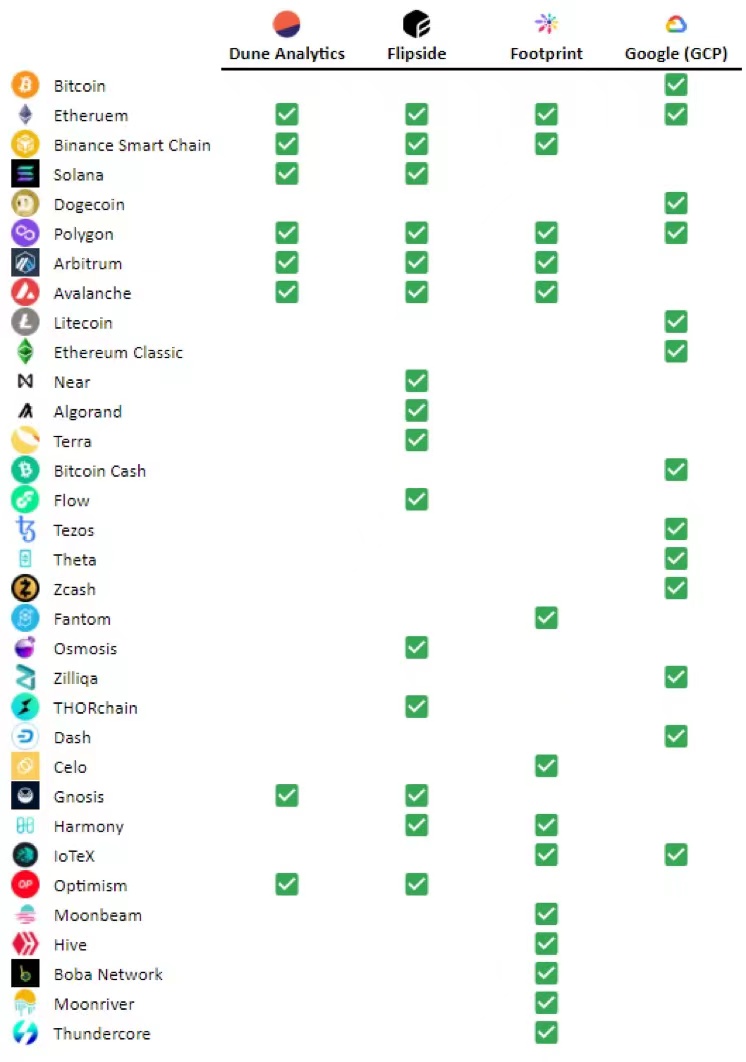
Summarize
Summarize
Throughout the analysis, the platforms were very different. Taking into account the different interfaces, priorities and performance variability, I come to the following conclusions for my ideal analysis tool:
Share analysis results (choose Dune): If your goal is to share analysis results, Dune is undoubtedly your best choice. While not quantitatively measured, their dashboard tool is better and smoother than others. The community surrounding Dune positions it as the go-to platform for synthesizing and sharing on-chain analytics.
Performance (Choose Flipside): Flipside consistently outperformed Dune when evaluating both connection speed and data analysis. While Flipside has underperformed against BigQuery competition, Flipside leads the way with a vast list of smart contract-enabled chains and crypto-native tables, and Flipside will continue to prioritize maintaining and sharing crypto-focused tables. If fast-running query speeds are your preference, Flipside is for you.
Chain Latency (Choosing Transpose): Even though Transpose is a newcomer and only on Ethereum, Transpose really blew me away because of how quickly they can collect the latest data from the chain. If you are a builder who needs up-to-date data for any reporting or visualization, you should give Transpose a try.
secondary title


